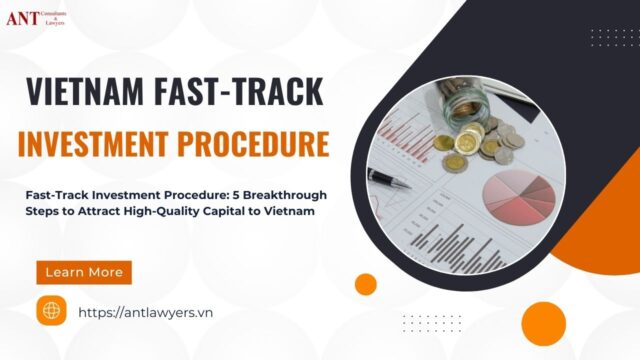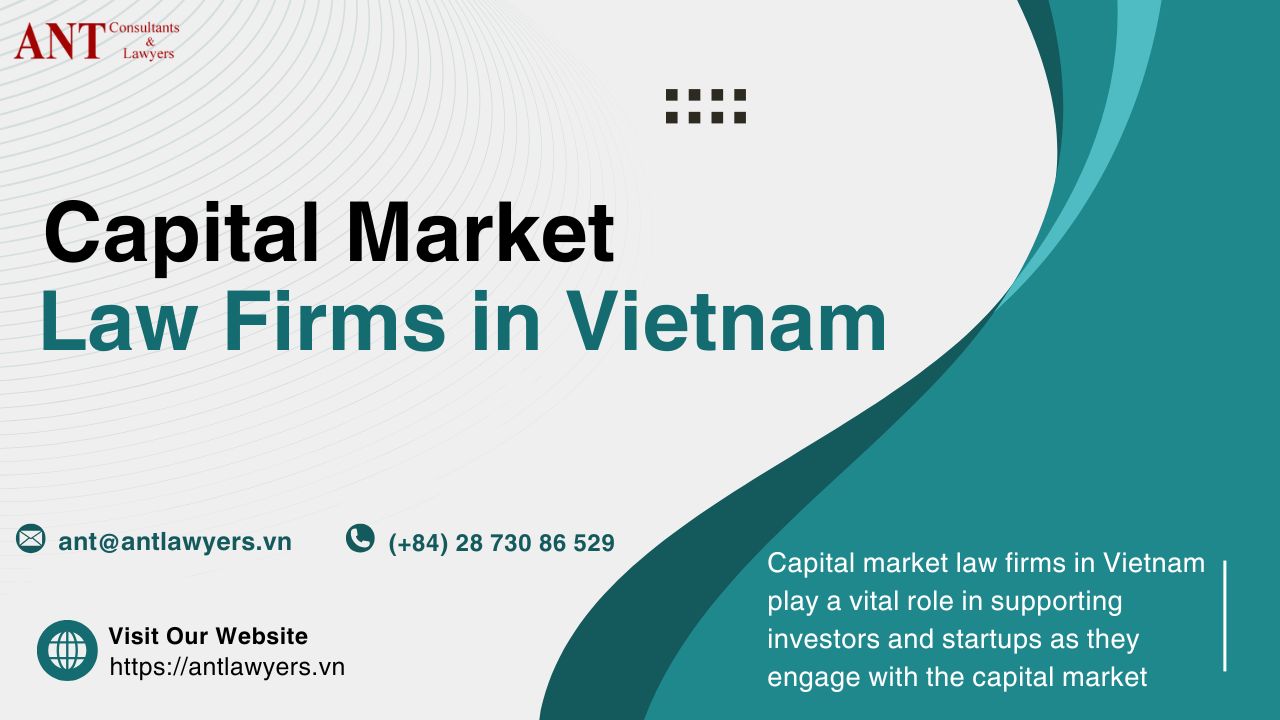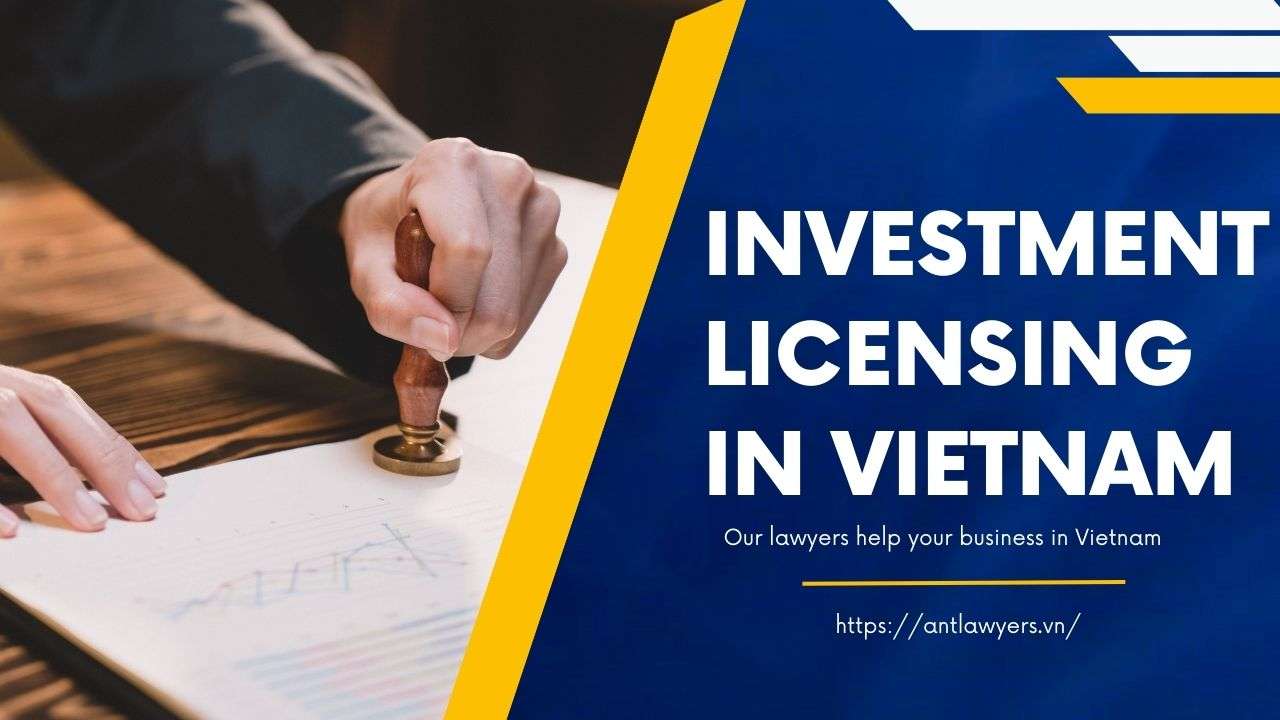Introduction to the Vietnam Fast-Track Investment Procedure
In the highly competitive global race to attract foreign direct investment (FDI), Vietnam has undertaken a series of strategic reforms to enhance its appeal as a business destination. One of the most significant advancements is the introduction of the Vietnam fast-track investment procedure, a special mechanism designed to simplify administrative processes, reduce approval times, and accelerate project implementation.
This initiative is part of Vietnam’s broader ambition to become a global hub for high-tech industries, artificial intelligence (AI), semiconductor manufacturing, and innovation.
But why is Vietnam implementing this investment reform now? What do strategic investors expect from it? And how can investment administrative reforms through the Vietnam fast-track investment procedure become a practical and effective tool for businesses?
This article will analyze the key drivers behind Vietnam’s investment reforms and outline five breakthrough steps to optimize the Vietnam fast-track investment procedure, making Vietnam an even more attractive destination for global corporations.
Why Vietnam is Implementing the Fast-Track Investment Procedure
1. Capturing the Global Wave of High-Tech Investments
The world is entering a new industrial era, with cutting-edge sectors such as artificial intelligence, semiconductor manufacturing, robotics, and renewable energy at the forefront of economic transformation. To diversify supply chains and reduce reliance on a single market, major corporations are actively seeking new locations for their manufacturing and R&D facilities.
Vietnam, with its competitive labor costs, strategic geographic position, and improving investment environment, is well-positioned to attract these industries. However, to compete with other regional players, Vietnam must provide investment-friendly policies and efficient regulatory frameworks.
2. Addressing Challenges in the Traditional Investment Process
Despite Vietnam’s ongoing efforts to improve its investment climate, foreign investors still face several key obstacles:
- Lengthy approval timelines: Many companies must wait 6-12 months to complete investment licensing procedures.
- Complex administrative requirements: Excessive paperwork and overlapping regulatory approvals create inefficiencies.
- Inconsistent implementation across provinces: Some localities offer business-friendly policies, while others maintain rigid bureaucratic structures, leading to uncertainty for investors.
These barriers often delay project execution or deter investors from choosing Vietnam over competing destinations. Recognizing these challenges, the Vietnamese government is now implementing the Vietnam fast-track investment procedure as a critical step to enhance the country’s global competitiveness.
Decree 19/2025/ND-CP – Legal Framework for the Vietnam Fast-Track Investment Procedure
To institutionalize this reform, the Vietnamese government issued Decree 19/2025/ND-CP, which took effect on February 10, 2025. This decree simplifies investment procedures for priority industries, ensuring faster approvals and greater operational flexibility.
Key Provisions of Decree 19
- Scope of Application:
- Applicable to investment projects in semiconductors, AI, high-tech industries, R&D, and innovation.
- Applies to projects within high-tech parks, export processing zones, and special economic zones.
- Accelerated Approval Timeline:
- Investment licenses issued within 15 days instead of 6-12 months.
- Shift from Pre-Approval to Post-Monitoring Mechanism:
- Investors can begin project implementation immediately upon committing to regulatory compliance.
- Government authorities will monitor and verify compliance post-launch, rather than requiring upfront documentation.
- Streamlined Licensing for Supporting Approvals:
- Investors in designated priority sectors will not need separate approvals for construction, environmental impact assessments, or fire safety permits if they commit to international standards.
- Simplified Investment Guarantees:
- Investors can use bank guarantees or submit a commitment agreement instead of undergoing complex capital verification processes.
Key Differences Compared to Traditional Investment Procedures
- Approval time reduced by up to 75%, from 6 months to just 15 days.
- Eliminates up to 260 days of bureaucratic delays.
- Creates an attractive environment for high-tech and AI-driven projects.
This decree marks a significant shift in Vietnam’s approach to investment facilitation, aligning the country with global best practices.
What Foreign Investors Expect from the Vietnam Fast-Track Investment Procedure
Foreign companies planning to invest in Vietnam expect more than just speed—they seek a transparent, stable, and predictable investment environment. Their key expectations include:
- Clear, streamlined administrative procedures to avoid unnecessary delays.
- Policy stability, ensuring that investment incentives remain unchanged for at least 10-15 years.
- Government support and facilitation throughout project implementation.
- Well-defined tax incentives and financial assistance for R&D and high-tech manufacturing investments.
If Vietnam successfully addresses these concerns, it could emerge as a preferred destination for multinational corporations seeking to expand in Southeast Asia.
How to Ensure the Vietnam Fast-Track Investment Procedure is Effective
To make the Vietnam fast-track investment procedure a practical success, Vietnam must take decisive steps to ensure effective implementation and investor confidence.
1. Digitalizing the Investment Process
- Implementing a fully online investment licensing system will allow investors to track approvals and submit documents digitally, eliminating unnecessary delays.
2. Enhancing Legal Transparency and Stability
- Investment incentives should be locked in for a minimum of 10-15 years to encourage long-term commitments.
- A central regulatory body should oversee policy implementation uniformly across provinces.
3. Strengthening the Skilled Workforce for High-Tech Industries
- Vietnam must invest in education and vocational training to develop a talent pool capable of supporting AI, chip design, and advanced manufacturing projects.
4. Expanding Infrastructure in High-Tech Zones
- Priority should be given to developing industrial parks with world-class facilities, stable power supply, and efficient logistics networks to support large-scale manufacturing.
5. Introducing Regulatory Sandbox Models
- High-tech investments often involve rapid innovation cycles—by implementing sandbox models, Vietnam can allow investors to test new technologies before full regulatory approval.
The Vietnam fast-track investment procedure represents a transformational policy shift for Vietnam. If effectively implemented, it will not only boost FDI inflows but also position Vietnam as a leading hub for AI, semiconductor manufacturing, and high-tech industries in Asia.
By addressing administrative inefficiencies, improving legal transparency, and enhancing infrastructure, Vietnam can emerge as a globally competitive investment destination, offering speed, stability, and strong government support to investors.
For foreign companies considering Vietnam, now is the perfect time to seize new opportunities in AI, semiconductor manufacturing, and innovation-driven industries—with streamlined regulations paving the way for accelerated market entry.
About ANT Lawyers, a Law Firm in Vietnam
We help clients overcome cultural barriers and achieve their strategic and financial outcomes, while ensuring the best interest rate protection, risk mitigation and regulatory compliance. ANT lawyers has lawyers in Ho Chi Minh city, Hanoi, and Danang, and will help customers in doing business in Vietnam.
How ANT Lawyers Could Help Your Business?
You could reach ANT Lawyers in Vietnam for advice via email ant@antlawyers.vn or call our office at (+84) 24 730 86 529




